Tomorrow the year will draw to a close and it’s a time to look back on the last 12 months and also to remember those who will not be accompanying us into the New Year. It’s a list comprised above all of people (not least the submarine crew of the ARA San Juan) but also things – thus 2017 was the last of 141 years publishing for the Buenos Aires Herald, whose final edition appeared on July 28.
The Buenos Aires Times has already sought to maintain continuity with the Herald by having most of its living former editors as guest columnists and honorary editors (many of whom have been allowed a rest for the Christmas week in this edition but who will be back next year) – today we will also sustain the now-shuttered newspaper’s tradition of a month-by-month account of Argentine news during the outgoing year on its last weekend.
JANUARY
Early in the year comes a potentially historic development – by signing an agreement with state-oil company YPF and the national and Neuquén provincial governments, Vaca Muerta shale oil workers become trade union pioneers by accepting more flexible labour conditions. In the courts, the 2015 death of special AMIA prosecutor Alberto Nisman is re-opened as a murder investigation. The economy is still in recession but at least the deceleration is decelerating. Floods affect the harvest in many zones. AFI intelligence chief Gustavo Arribas is charged with receiving kickbacks in the context of the Odebrecht mega- scandal originating in Brazil and spreading over the subcontinent. Abroad the Davos World Economic Forum unfolds in Switzerland without last year’s combo of President Mauricio Macri and Renewal Front leader Sergio Massa while in the United States Donald Trump is inaugurated – and Tucumán lemons are among his earliest targets...
FEBRUARY
Macri turns 58 (the third Argentine president running whose birthday falls in the shortest month of the year) but has little to celebrate with plunging popularity – condoning a Post Office debt to his own family (a birthday present in reverse) raises conflict of interest issues, chipping 0.31 percent off the next pension increase leaves an image of social insensitivity out of all proportion to the percentage, Buenos Aires province teachers start a seemingly endless pay dispute by knocking back an 18 percent offer and Supreme Court Justice Elena Highton de Nolasco refuses to go upon reaching retirement age. In other news, former Army chief-of-staff César Milani is arrested over a conscript disappearance during the 1976- 83 military dictatorship. But the silly season also lends itself to lighter news – the month begins with a topless protest in Plaza de Mayo and ends with “fake news” invading Hollywood’s Academy awards when La La Land is announced as the best picture instead of the actual Oscar winner Moonlight.
MARCH
The month begins with the presidential state-of-the-nation speech to open Congress (a not very memorable one but at least Macri keeps it short, unlike his predecesor) but not with the start of classes as scheduled. A March of marches drawing hundreds of thousands – both for a CGT protest and International Women’s Day. The economic data reflect this mood – the 2016 recession persists with -2.6 percent negative growth and 2.5 percent inflation posted for February. The dollar futures case kicks off a year of trials for ex-president Cristina Fernández de Kirchner. In football news, Claudio “Chiqui” Tapia becomes the new president of AFA Argentine Football Association and Lionel Messi is suspended for four World Cup qualifiers (the sanction is later halved).
APRIL
“April showers bring May flowers” runs the saying, but the very first day of the month produces a turning-point for Macri with the so-called ‘1-A’ rally bringing thousands out into the street in his favour. April Fool’s Day? Read on. The second day of the month is the 35th anniversary of the South Atlantic war. The tide does not immediately turn for Macri, however. April’s first week also includes a general strike whose success is guaranteed by a total transport stoppage – gas bills rising by 36 percent also cause bad blood. But a tax whitewash haul of US$117 billion is also good economic news. The second week of the month is Easter while Macri rounds it off by going to Houston and Washington DC just in time for Trump’s 100 days. In courtroom news, Arribas is speedily acquitted while CFK’s Hotesur money-laundering trial, the biggest corruption case against her, begins. In football news, national trainer Edgardo Bauza is dumped while Marcelo Tinelli withdraws from the AFA.
MAY
May Day sees multiple rallies reflecting a split opposition which is to prove electorally decisive. A Supreme Court ruling retroactively applying the defunct “2x1” criterion (two days off the final sentence for every day in pre-trial detention) to a 1976-83 dictatorship underling causes a huge storm of protest even after Congress quashes it with a 211-1 vote. Macri travels to China (for the “One Belt, One Road” Summit) and Japan. Odebrecht fallout reaches Argentina while both former vice-president Amado Boudou and the Schoklender brothers go to trial. Foreign Minister Susana Malcorra unexpectedly resigns.
JUNE
The first Sunday of the month sees the year’s first electoral bout and a triumph for Macri’s Cambiemos Let’s Change coalition – the Corrientes gubernatorial elections with the Radicals holding the province. Two weekends later the deadline for PASO primary nominations expires with CFK creating her own Civic Unity list (launched on Flag Day) and leaving the Justicialist (Peronist) label in the hands of ex-minister Florencio Randazzo.
Still no end in sight for the seemingly endless teacher pay dispute in midmonth with a big march snarling traffic but as the month ends, a settlement draws close. On the graft front there is a massive crackdown on La Salada black market and Odebrecht sells its Sarmiento rail underpass project shares. Other news ítems include the Global 100-year bond and the death of Clarín’s Ernestina Herrra de Noble at the age of 92. But the big news on the last day of the month – Messi marries in Rosario.
JULY
Halfway into the year, Buenos Aires province teachers finally settle for 27 percent. The first official data of the revamped INDEC statistics bureau gives Macri almost the year’s first positive numbers – 2.3 percent growth for May and 1.2 percent inflation for June. Macri goes to the G20 summit in Hamburg where Trump is very much the elephant in the room while on this side of the Atlantic the Mercosur summit in Mendoza is dominated by the Venezuela issue. The first attempt to expel former Federal Planning minister Julio De Vido from the Lower House obtains an insufficient 138-95 majority. Pepsico workers protest layoffs. A cold month ends with the closure of the Buenos Aires Herald after 141 years of publishing, the latest in a series of Argentine media outlets that close their doors.
AUGUST
A month marked by Macri’s PASO primary triumph in the second Sunday of the month, doubling his 2015 haul of five districts to 10 of the 24. These do not include the big one though – Buenos Aires province – where CFK ekes out an 0.3 percent win in senatorial voting (Cambiemos win comfortably at Lower House level), which is tantamount to defeat ahead of the real thing. His rival’s slim victory does not affect Macri’s celebratory mood on election night when the count is closed with her still trailing Cambiemos rival Esteban Bullrich (her victory is only confirmed on the second-last day of the month). A political triumph achieved despite not controlling the agenda even, which is dominated by the disappearance of tattoo artist Santiago Maldonado on its very first day in the context of a Mapuche indigenous protest in Patagonia with widespread suspicion of a “forced disappearance” falling on the Gendarmier (Border Guard).
SEPTEMBER
A month dominated by the election campaign, which is in turn dominated by the black swan issue of Maldonado, who remains missing throughout. But the government counters with a steady supply of feelgood economic data (such as less unemployment, the poverty rate falling below 30 percent, a mortgage boom and a 20 percent construction surge in July thanks to public works spending with even industrial output up 5.9 percent), which might well have proved electorally more decisive. Nisman’s death is confirmed as murder following an investigation by 28 experts. The 2018 Budget is presented in mid-month. Israeli Prime Minister Benjamin Netanyahu pays a high-profile visit to Buenos Aires. Dozens of City schools are occupied by their students. De Vido is placed on trial for the 2012 Once rail tragedy.
OCTOBER
A build-up of economic feelgood and polarisation against Fernández de Kirchner propel Macri to improve on PASO in the ‘O22’ elections, advancing from 10 to 13 of the 24 districts (adding the heavyweights of Buenos Aires and Santa Fe provinces plus the Peronist strongholds of Chaco, La Rioja and Salta while failing to sustain primary wins in La Pampa and San Luis) – the discovery of Maldonado’s body in the Chubut River just before the elections has no apparent impact on the result. Cambiemos polls over 41 percent of the vote nationwide with Elisa Carrió’s list topping half in this city. Despite Macri’s broad satisfaction with his team after the midterm triumph, he still tweaks his Cabinet with changes in the Agriculture and Health Ministries (the Rural Society’s Luis Miguel Etchevere moves into the former).
Within days of the victory De Vido is voted out of the Lower House and jailed while earlier in the month Jujuy social activist Milagro Sala returns to prison less than six weeks after being granted house arrest.
Former US president Barack Obama visits Córdoba and plays golf with Macri.The month closes with Halloween terror in Manhattan after five bicycling school friends from Rosario are among the eight mowed down by an Islamic extremist.
NOVEMBER
The dramas of the disappearance of the ARA San Juan submarine in midmonth and the Coast Guard shooting of Mapuche militant Rafael Nahuel near Bariloche overshadow other news, which include Boudou joining De Vido in jail and the Paradise Papers exposing more offshore accounts of the rich and famous. A “historic” fiscal pact with provincial governors lays the foundations for the tax and pension reforms dominating the legislative agenda for the rest of the year (especially after labour reform is postponed for 20189) – in the last session of the month the Senate passes the pension reform by a 43-23 vote, sparking the first protests by tens of thousands. The domino arrests of Kirchnerite ex-officials seem to convince Attorney General Alejandro Gils Carbó that it is pointless to continue resisting Macri’s pressures for her ouster, announcing her departure at the end of the year while still able to negotiate favourable terms (such as an early privileged pension). Soon afterwards Judge Eduardo Freiler is removed from the bench by the Magistrates Council. At the end of the month the ESMA (Navy Mechanics School) mega-trial for crimes against humanity during the 1976-83 military dictatorship concludes with life sentences for 29 out of the 48 defendants convicted (with six acquittals).
DECEMBER
On the first day of the month the World Cup draw in Moscow groups Argentina with Iceland, Croatia and Nigeria.
In the first week Federal Judge Claudio Bonadio explosively orders the arrest of then senator-elect Fernández de Kirchner for “treason” in the 2013 memorandum of understanding with Iran but she duly takes her seat the following week.
The inconclusive WTO (World Trade Organisation) summit not only fails to deliver on a rashly promised Mercosur-European Union free trade agreement but cannot even produce a closing statement – it also triggers anti-globalisation protests which prove to be small potatoes when compared to the violent street protests outside Congress against the pension reform the day after the summit’s closure as December erupts.
A government strategy of sneaking through that sensitive legislation during an electoral honeymoon thus backfires badly. The first session (D14) collapses but negotiations with Peronist governors secure Lower House passage of the unpopular bill – which proposes to save 60- 100 billion pesos via stricter index-linking of pension updating (if indeed saved with Buenos Aires Governor María Eugenia Vidal in line for extra funding) – by a 127-117 vote five days later. Electricity and gas bills as well as fuel pricing soar 25-45 percent. Sala returns to house arrest after a Supreme Court ruling to respect international recommendations.
Kirchnerite tycoon Cristóbal López is arrested and jailed for tax evasion. The year closes with Senate passage of the government’s tax package and the 2018 Budget.
Argentines who passed away in 2017
As with each and every year, sadly we had to say goodbye to a few more well-known names and famous faces over the past 12 months. Here’s a selection:
January 6: Ricardo Piglia, 75, writer and critic, highly respected in literary and progressive circles.
January 13: Horacio Guarany, 91, an iconic figure in Argentine folk music, he was also a cardcarrying member of the Communist Party from 1955 onwards and a legendary drinker.
February 1: Basilio Lami Dozo, who died on his 88th birthday, was the Air Force member of the Leopoldo Galtieri which fought the 1982 South Atlantic War against Britain and the least discredited owing to his force’s performance.
Convicted in the 1985 juntas trial, he was pardoned by Carlos Menem in 1990.
June 1: Roberto De Vicenzo, 94, the most famous Argentine golf-player of all time, who won 230 tournaments in his long career, including the 1967 British Open.
June 7: Ernestina Herrera de Noble, 92, was the owner of the vast Clarín media group from the death of her husband Roberto Noble in 1969.
June 20: Héctor Ríos Ereñú, 86. Although Army Chief-of-Staff for little more than two years, his stint was memorable for ending in the Easter army mutiny against Raúl Alfonsín in 1987. In 2013 he was given a life sentence for crimes against humanity during the 1976- 83 military dictatorship.
June 26: Gerónimo “Momo” Venegas, 75, head of UATRE farm hands union for 25 years, he was a rare example of an Argentine labour leader backing President Mauricio Macri. His death was prematurely announced earlier in the year.
August 8: Jorge Zorreguieta, 89, Agriculture Secretary from 1979 to 1981 under the 1976-83 military dictatorship and father of Queen Máxima of the Netherlands, for whom this junta past was a minor obstacle at the time of her royal wedding in 2002.
September 24: María Julia Alsogaray, 74. Born into a rightwing engineering family (her father Alvaro was a free-market presidential candidate), she is most famous for teaming up with neo-conservative Peronist Carlos Menem (1989-99), first as a trustee privatising telephones and then as Environment Secretary. The only prominent member of Menem’s administration to go to jail, she served various prison sentences for corruption from 2004.
October 20: Federico Luppi, 81, film actor who had an extremely prolific career for over five decades in both Argentina and Spain.
October 31: Mario Das Neves, 66, a Peronist politician who rose to become governor of Chubut in 2003 under the aegis of 2002-3 president Eduardo Duhalde, dying of cancer in the middle of his third term.
November 20: Víctor Martínez, who died on the eve of his 93rd birthday, was a Córdoba Radical politician (mayor of the provincial capital 1963-6) who was the unassuming vice-president of Raúl Alfonsín from 1983 to 1989.
December 13: Carmen Aguiar de Lapacó, 92, a human rights activist and a founding member of both the Mothers of Plaza de Mayo and the Centre for Legal and Social Studies (CELS).












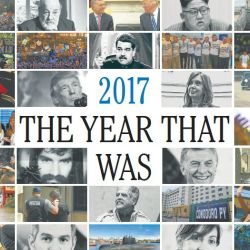
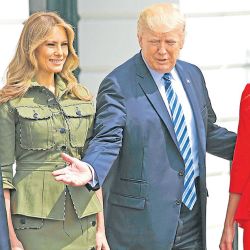
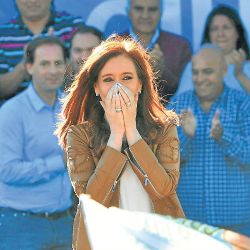
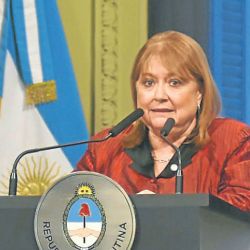
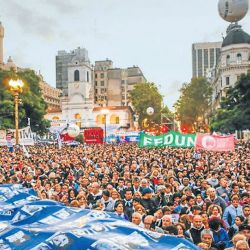
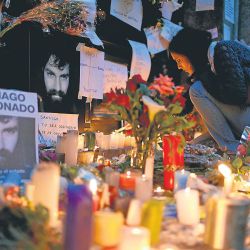
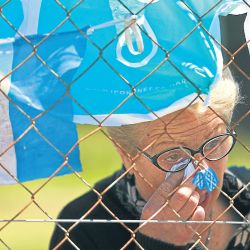
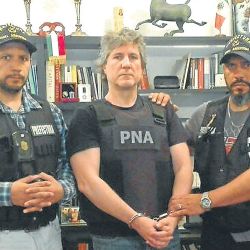
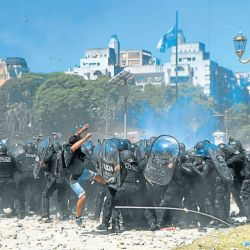














Comments